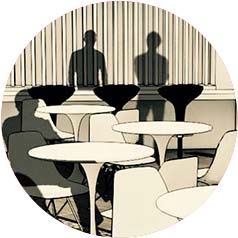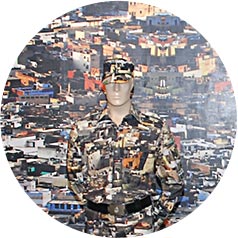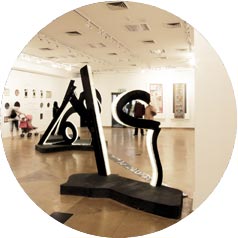The endless wait
We live in a paradoxical moment. In the rapidly transforming motion of India is a place of pause. A moment of repose. Where time lingers for tide. A waiting place, that seems to epitomize the great Indian mindset, forever in a static state of wait. Waiting for leaders to lead, waiting for rules to be followed. Waiting for the train to arrive, waiting for the poverty to depart. Waiting for electricity to come, waiting for roads to go on. Waiting for a message to beep or for opportunity to knock. Waiting for a better job or waiting to retire. Waiting for a queue to begin, waiting for corruption to end. Waiting for incomes to rise and waiting for rains to fall, waiting for the corrupt to fail and for a prime minister to achieve….we wait and wait and wait, making a virtue of patience and tolerance bordering on the point of meditative coma.
It is frightful proposition. Yet scarier still is the fact that it seems to have stepped out of its meta-virtual space and started to grow into our physical fabric. Our cities are now infested with the manifestations of wait. Our pavements wait for pedestrian priority, our streets wait to have defined edges. Our boundary walls wait to be relieved of odor and stains by ample public toilets. Our medians wait for trees. Our trees wait for benches. Our parking lots wait to become parks with better public transport. Our colony parks wait to shed their gates to equitable public use. Our monuments wait to be used and converted to museums, galleries and community centers. Our slums wait to be replaced by affordable housing. Our new townships wait for adequate power and water. Our rivers wait to be decontaminated. Our manholes and drains wait for covers. Our buildings wait to be counted with the ‘world class.’ It’s almost as if urban India is plagued by a serious case of waiting. A deluge of waiting places have sprouted on the map of its cities. Obtrusion in the steady flow of growth and progress, pulling the brakes on development. Endlessly waiting in vain.
Its not that the absence of the ‘waited for’ is not felt. It is thought of, debated, argued and even negotiated in conferences, under bus-stops, at dinner parties and on live television. If ever an attempt is made to dispel the missing impetus for change it is done in a manner so incremental that by the time it reaches anywhere in its snail-like pace it has already become obsolete. It is tiring to wait and no amount of vicarious voyeuristic pleasure in watching time pass from the sidelines can justify it. Instead of building places that display to the world we have’ arrived’ or then show we are ‘on the go’ we build these tiresome places of wait.
While some optimistically drag it under the label of ‘hope’, like all lengthy waiting these places are typified by a sense of apathetic boredom filled with the stench of a flaccid attitude. One that emerges more from a lack of will rather than funds. Not the will to think but a will to do. One that should be intrinsic for those born in the land of karma. The understanding that even destiny as fatalistic acceptance is a consequence of action or in the case of our cities ‘inaction’ seems to have stagnated under the silent sighs of those who wait. Ironically waiting for that elusive messiah to descend from the heavens and do what we are all perfectly capable of doing ourselves.
For once rather than assume it needs an act of genius, cannot we seek solutions to our complex urban diasporas in the simple act of ‘can do’? The two magic words needed to break the curse of waiting oblivion. What is strange is besides our mindset there is no plausible reason for this lack of fortitude. Words such as red tape, bureaucracy and system are excuses to wait, built over time into fortified walls that now entrenched on the surface of our cities like the indentations on our palms. They cannot be erased but they can be built upon and buried. Archived in the hallowed annals of history allowing us freedom to move on.
— Suparna Bhalla
Published on July 21, 2012





























ssss